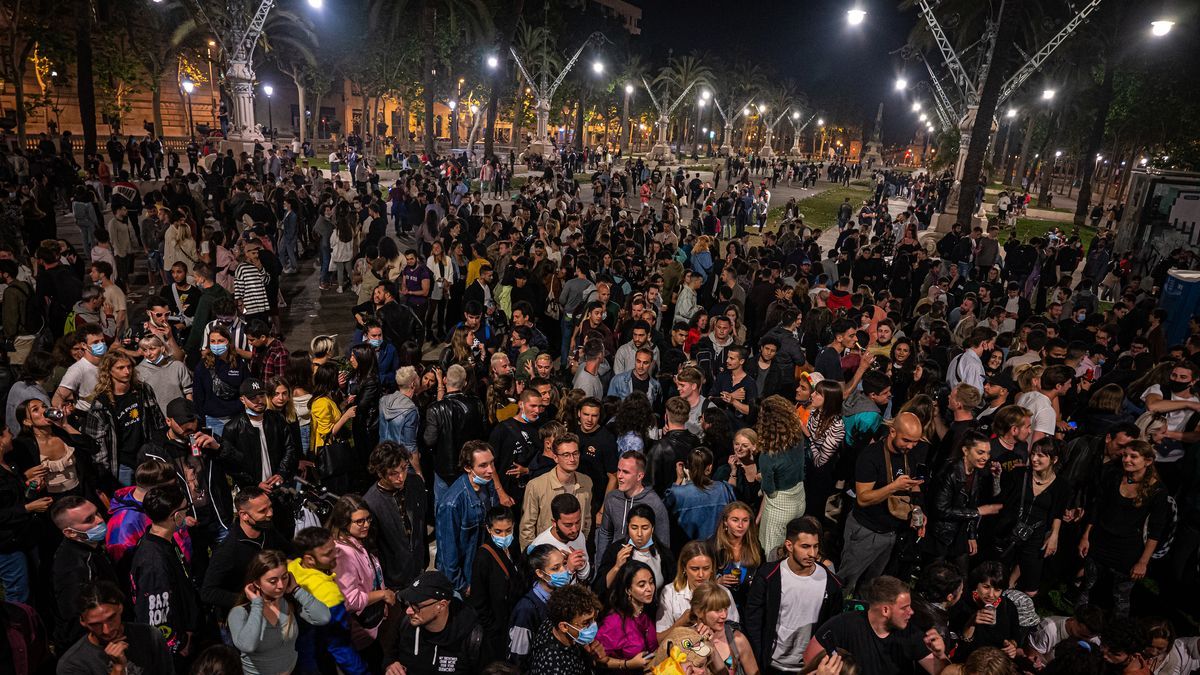
[ad_1]
Barcelona exploded when the clocks struck at midnight and hundreds of young people left their homes towards the beach, where a party was improvised without too many precautions against the Covid.
Amid the celebrations on the streets of the capital Madrid, a woman announced that she was planning to visit Galicia next weekend.
“I was up to not being able to leave Madrid, I felt frustrated, attached, without freedom,” the 46-year-old jewelry designer told AFP news agency.
After the explosion of cases Spain experienced after the Christmas holidays, the authorities maintained the closures of regions for Holy Week, a fundamental family holiday in Spain.
On the other hand, the country has remained open to foreign tourists, which has generated great discomfort among many Spaniards deprived of travel between regions.
However, the end of the alarm state does not mean the end of the restrictions on one of the countries most affected by the virus in Europe, with nearly 79,000 deaths and 3.5 million infections.
And for the 17 regions of the country, competent in the management of the health crisis, its conclusion is a real headache.
Since October, they have been able to impose curfews and block entry and exit from their territory without judicial authorization, thanks to the limitation of the fundamental freedoms allowed by this exceptional regime.
Now they can limit the hours and capacity of stores, bars or restaurants, but to reinstate a curfew or the closure of their territory, they will need court approval.
For example, the Balearic and Valencia regions have been given the green light from the courts to maintain the curfew, but the Basque Country, with a much higher incidence of the virus, has not.
This disparity in criteria already occurred in early autumn, causing confusion and prompting the government of Socialist President Pedro Sánchez to declare a state of alert.
Over the past few weeks, several regions have requested an extension of this legal instrument to the executive, which, to do this, would have required the difficult support of Congress, where it is in the minority.
But the Sánchez government rejected it, saying that an emergency regime could not be prolonged indefinitely and stressing the improvement of the health situation and the progress of the vaccination program.
We must avoid having “a false perception (…) This does not mean the end of control measures” of the epidemic, insisted last week the chief epidemiologist of the Ministry of Health, Fernando Simón.
[ad_2]
Source link
 Naaju Breaking News, Live Updates, Latest Headlines, Viral News, Top Stories, Trending Topics, Videos
Naaju Breaking News, Live Updates, Latest Headlines, Viral News, Top Stories, Trending Topics, Videos